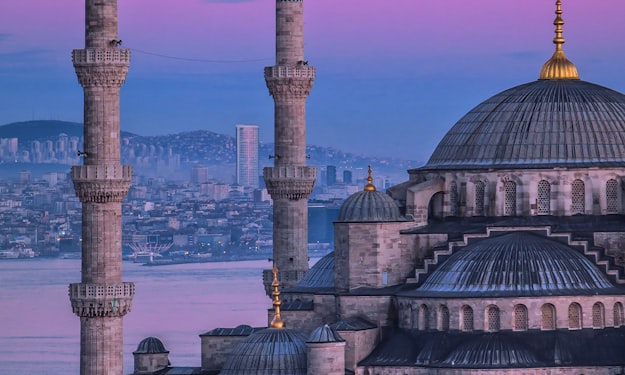
Patrizia Poli
Bio
Patrizia Poli was born in Livorno in 1961. Writer of fiction and blogger, she published seven novels.
Stories (268/0)
Terradimandorla's "Divento di Vento"
A collection of very well written, very literary stories. They range from science fiction to the dreamlike, passing through the surreal. Illustrated with decomposed, almost liquid drawings in pastel colours. Terradimandorla, pseudonym of Cristina Basile, an expat author hovering between France and Sicily, writes and paints them.
By Patrizia Poli27 days ago in BookClub
Aldo Dalla Vecchia's "La Tele a Torino"
An agile and economical pocket manual, like a small precious treasure chest. It brings together 70 years of television linked to a city that is not Rai's Rome nor Mediaset's Milan, but rather the austere, elegant and profitable Turin.
By Patrizia Poli2 months ago in BookClub
GiuseppeBenassi's "Una Favolosa Eredità"
A ride into disgust, more and more explicit, less and less mitigated by the sublime of the art or the lyricism of the landscape, this latest effort by Giuseppe Benassi. In “A Fabulous Inheritance” we find the ever-present Labronian lawyer Borrani dealing with a case full of legal as well as criminal quibbles, a huge inheritance disputed between four people, with as many wills now in favor of one, now of the other. Someone dies, as is predicted by the first victim in the incipit of the novel, indeed, there are two people killed, and it is not easy to disentangle the various characters, who all have more or less a reason for crime. The environment in which we move is no longer Livorno but Fauglia, sweet and perverse Tuscan countryside, made of art, old dusty villas, unspeakable hatreds and resentments. Inherits are disputed, people die in mysterious circumstances, lawyers fight each other, there is even an authentic Michelangelo involved, art in the end wins over everything and blessed is he who can enjoy it fully, even redeeming the evil committed in a sort of Parnassus.
By Patrizia Poli4 months ago in BookClub
Doc nelle tue mani
I have reached the end of the third season of “Doc in Your Hands”, an amazing medical drama — there will probably be a fourth, given its success — but the last episode left me very dissatisfied. After a great “episode” like the sixth, the one about the earthquake so to speak, worthy of the best American series and of the progenitor E. R., I was disappointed by the ending.
By Patrizia Poli4 months ago in Fiction
Emma Fenu's "In Cerca di Te"
The (large and hidden) part of me that monthly flooded the menstrual Red Sea with silent tears, that feared envying other people’s pregnancies, then ended up loving the products of those pregnancies gutlessly, considering them compensation and a belated gift, that part, I was saying, recognizes the suffering of Emma Fenu in her “In Search of You”.
By Patrizia Poli7 months ago in BookClub
Bennet and Darcy
More than two hundred years have passed since the publication of Pride and Prejudice by Jane Austen, a novel that was never associated with the author’s name during her lifetime; for all, Austen was, and remained, the writer of Sense and Sensibility.
By Patrizia Poliabout a year ago in Humans
Luca Raimondi's "Se avessi previsto tutto questo"
This genre of novels arouses interest not for the plot nor for the style which, although correct, is original only in the alternation between colloquial and scholastic. If anything, as a mirror, more than of a generation — “If I had foreseen all this”, by Luca Raimondi, is set in the nineties, to tell us about it there are many small details and the musical soundtrack — rather of a climate, of an atmosphere, attributable to today’s, of young people immersed in a precariousness that is not only work but extends to all aspects of life, from study, to ethics, to feelings. It is a moral precariat of values, interests, culture, passions. A generation that goes from the nineties to 2016, which includes eighteen and forty-year-olds and is characterized by an absence of center, of references, of real involvement. A generation that floats in the void, with a creeping depression and a total absence of purpose or direction.
By Patrizia Poliabout a year ago in Humans
Old Friends and New Lovesa
Since 2009, the literary agency Jo March has been involved in “bringing to light distant fiction, in time or space, wrongly forgotten or never translated into Italian”. The translation and reprint of “Old Friends and New Fancies”, by Sybil G. Brinton, defined as “the ancestor of all sequels”, of all Austenian spin-offs and derivatives, written a hundred years after “Pride and Prejudice” (1813) and translated in Italian one hundred years after its publication (1913), satisfies precisely this criterion.
By Patrizia Poliabout a year ago in Humans
The Photo Novels
In the beginning it was the feuilleton of nineteenth-century newspapers, a popular novel in installments, destined to increase newspaper sales. Then, in 1947, a certain Stefano Reda goes around the publishing houses proposing the crazy and innovative idea of a comic that has photos instead of drawings. Only the small Novissima publishing house, affiliated with Rizzoli, accepts. Sogno, a sixteen-page newspaper, comes out. The subjects are by Reda and Luciana Peverelli, writer of romance novels. Shortly after, Arnoldo Mondadori also publishes a book of photo novels entitled Bolero (film). To these two must be added the previous Grand Hotel, whose novels, however, were only drawn.
By Patrizia Poliabout a year ago in Humans














